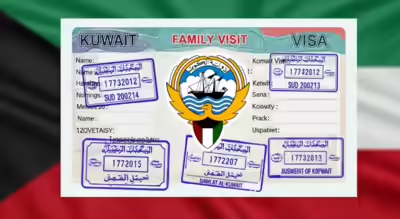In a significant policy turnaround that is already making waves across the Gulf region, the State of Kuwait has officially reopened the doors for family visit visas to all expatriates, regardless of their salary scale. This development, confirmed by reliable sources within Kuwait’s Ministry of Interior and Gulf Affairs Desk, marks a progressive shift in the country’s immigration stance and comes after months of deliberation on easing entry conditions for expatriate families.
Previously, family visit visa applications were tightly regulated, with income thresholds serving as a key criterion, often restricting lower-income earners from reuniting with loved ones in the country. Now, under the newly announced reforms, salary will no longer be a limiting factor. All expatriates, irrespective of their professional grade or financial earnings, can now apply to bring immediate family members to Kuwait on visit visas. This includes spouses, children, and parents, as long as basic procedural requirements are met.
Officials familiar with the development indicate that the decision forms part of Kuwait’s broader social inclusion agenda, aimed at enhancing the quality of life for its sizeable expatriate population, which makes up nearly 70 percent of the country’s residents. The latest move is expected to ease emotional and psychological burdens for many, particularly those who have endured long periods of family separation due to the previous restrictions.
Applications for the visa are now being accepted through the Ministry of Interior’s official portal and designated service centres, with streamlined documentation procedures reportedly in place to ensure efficiency and fairness. However, while the salary condition has been removed, authorities have maintained that other security and procedural checks, such as health insurance, valid residency status, and verification of familial ties, will still apply to ensure system integrity.
The announcement is already being welcomed by various expatriate communities within Kuwait, including large populations from South Asia, Egypt, the Philippines, and parts of Africa. Analysts believe this step could also contribute positively to the local economy, with increased short-term residency resulting in greater spending in sectors like retail, hospitality, and transport.
Kuwait’s latest immigration policy shift arrives at a time when several Gulf states are re-evaluating their approach to foreign workers and their families. By lifting these long-standing barriers, Kuwait may be signaling a more humanitarian and socially progressive direction, which could strengthen its regional image and attract a more stable, committed expatriate workforce.
As of this report, no official deadline has been set for the end of this open policy, and insiders suggest that it may become a standing feature of Kuwait’s residency framework if current feedback continues to trend positively.
